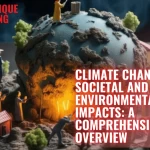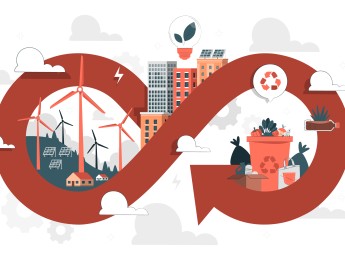Climate change is one of the most pressing global challenges, demanding urgent and coordinated action from governments, organizations, and communities. This course offers a comprehensive look at how climate policies are developed, implemented, and negotiated on international platforms. It explores the science behind climate action, the structure of global agreements, and the political, economic, and ethical factors shaping negotiations.
Participants will gain insights into the UN climate framework, national policy mechanisms, and the skills needed to understand—and even participate in—climate negotiations. By examining real-world case studies and practicing negotiation simulations, learners will understand the delicate balance between environmental responsibility, national interests, and global cooperation.
By the end of this course, participants will be able to:
- Understand the fundamentals of climate science and global climate challenges.
- Analyze key international frameworks, including the Paris Agreement and COP processes.
- Explore how climate policies are formed and implemented at national levels.
- Identify the interests and roles of different negotiation actors (countries, blocs, organizations).
- Practice core principles of international climate negotiations.
- Evaluate climate finance mechanisms and adaptation strategies.
- Support climate advocacy and policy development in their own contexts.
This course is ideal for:
- Government officials and diplomats working on climate/environmental issues.
- NGO representatives involved in climate justice and sustainability.
- Researchers and academics in environmental policy, climate science, or international relations.
- Climate change advisors and consultants.
- International development professionals.
- Young leaders participating in climate advocacy or Model UN simulations.
- Journalists and communicators covering environmental negotiations.
The course uses interactive lectures, UN negotiation simulations, real case study reviews, and group strategy sessions. Participants will engage in mock climate talks, evaluate national policy documents, and discuss negotiation positions from diverse perspectives. The content balances policy theory with practical skills to build understanding and confidence.
Day 5 of each course is reserved for a Q&A session, which may occur off-site. For 10-day courses, this also applies to day 10
Section 1: Climate Science and the Global Challenge
- Basic climate science: greenhouse gases, warming, and tipping points.
- Global climate trends and IPCC assessments.
- Social and economic impacts of climate change.
- Vulnerable populations and climate injustice.
- The science-policy interface in climate decision-making.
- The importance of limiting warming to 1.5°C.
Section 2: International Climate Agreements and Institutions
- History of climate diplomacy: From Kyoto to Paris.
- The structure and objectives of the UNFCCC.
- Key agreements: Paris Agreement, COP meetings, and NDCs.
- Loss and damage, adaptation, and mitigation goals.
- Overview of major climate blocs (G77, EU, Small Island States, etc.).
- The role of IPCC, UNEP, and non-state actors in climate governance.
Section 3: National Climate Policy and Implementation
- Developing national climate strategies and roadmaps.
- Climate adaptation and mitigation policies.
- Integration of climate into urban planning and energy systems.
- Policy instruments: carbon pricing, regulations, subsidies.
- Monitoring, reporting, and verification (MRV) of climate actions.
- Aligning national interests with global goals.
Section 4: Climate Negotiation Dynamics and Techniques
- Understanding negotiation structures and language.
- Interests and positions of developed vs. developing countries.
- The art of compromise and consensus-building.
- Negotiation tools: draft texts, working groups, and informal sessions.
- Simulation: Practicing a UN climate negotiation roleplay.
- Common challenges: trust, equity, and geopolitical tensions.
- Case studies from past COPs.
Section 5: Finance, Justice, and the Way Forward
- Climate finance: Green Climate Fund, adaptation funds, and private sector.
- Ensuring transparency and accountability in climate funding.
- The role of civil society and youth movements in pushing policy.
- Climate justice: addressing historic emissions and future responsibilities.
- Future trends: carbon markets, green innovation, and global cooperation.
- Preparing for COPs: roles of observers, negotiators, and technical experts.
- Supporting national and local climate action through global frameworks.
Upon successful completion of this training course, delegates will be awarded a Holistique Training Certificate of Completion. For those who attend and complete the online training course, a Holistique Training e-Certificate will be provided.
Holistique Training Certificates are accredited by the British Accreditation Council (BAC) and The CPD Certification Service (CPD), and are certified under ISO 9001, ISO 21001, and ISO 29993 standards.
CPD credits for this course are granted by our Certificates and will be reflected on the Holistique Training Certificate of Completion. In accordance with the standards of The CPD Certification Service, one CPD credit is awarded per hour of course attendance. A maximum of 50 CPD credits can be claimed for any single course we currently offer.
- Course Code PO2 - 133
- Course Format Classroom, Online,
- Duration 5 days











